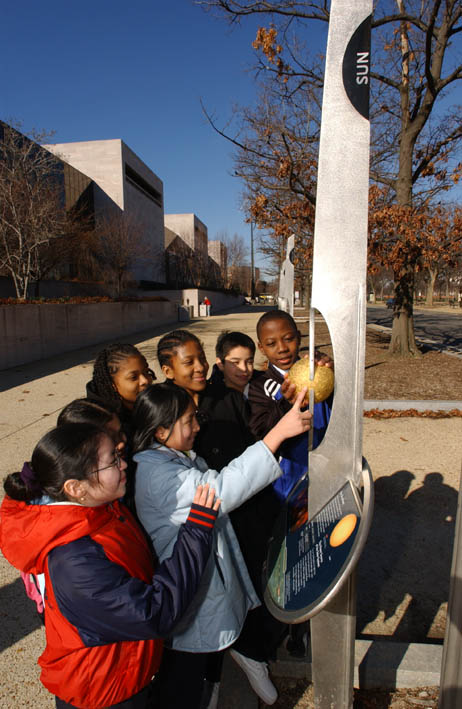Title: The Power of Models and Modeling in STEM Education and the Next Generation Science Standards
WHAT:
1-Day Professional Development Workshop for DC Grade 5-8 Educators
WHEN:
9:00 am to 4:00 pm, Saturday, June 1, 2013
WHERE:
Stuart-Hobson Middle School Cafeteria
410 E Street, NE, Washington, DC
parking: 25 parking spaces at building; and free parking on street
metro: 1/2 mile from Union Station Metro station
lunch: pizza will be served at the workshop
EARNED:
for DCPS teachers, 7 Professional Learning Units (PLUs)
REGISTRATION:
Send an email with your name, grade(s) taught, school, phone number, and date of workshop you will attend to stacyhamel@ncesse.org (if you do not receive a confirmation within 24 hours call Stacy at 434-465-8449).
DESCRIPTION:
Workshop attendees will be doing engaging inquiry-based hands-on lessons – and hear about programs – in the earth and space sciences that model characteristics of good STEM education: classroom experiences that foster student ownership in learning; critical thinking; conceptual understanding of core concepts; interdisciplinary exploration; and an understanding of the process of scientific inquiry. The workshop will address the Next Generation Science Standards, and use the Student Spaceflight Experiments Program (SSEP) as an example of how science education can model real science.
INSTRUCTOR:
Dr. Jeff Goldstein, Center Director, National Center for Earth and Space Science Education, and nationally recognized STEM educator (see separate bio)
OBJECTIVES:
1. Develop an understanding of Earth’s place in a greater space using the Grade 5-8 lessons associated with the Voyage Scale Model Solar System on the National Mall in Washington, DC.
Why: demonstrate how the power of models can provide a deep conceptual understanding of science concepts by making use of STEM disciplines.
2. Model best practices for classroom delivery of the Voyage lessons.
Why: demonstrate that facilitating exploration in the classroom can provide the learner ownership in the learning, and foster process skills that reflect good STEM education.
3. Foster an understanding of STEM education that models real science in the classroom, and the connection to the Next Generation Science Standards.
Dr. Jeff’s keynote address – Science: It’s Not a Book of Knowledge, It’s a Journey
4. Provide an example of a STEM program that models real science by immersing students in real science.
Approach: a look at the Student Spaceflight Experiments Program, and participation by the Capitol Hill Cluster Schools





